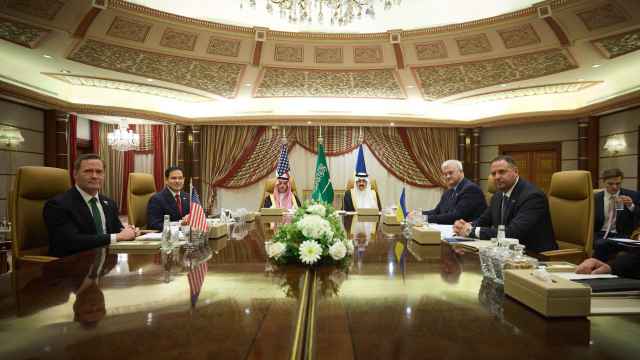"These international agreements, in fact, have legally denied law-enforcement officials the right not only to control border crossings by foreigners, but also made it impossible to document the mere fact that a foreigner has entered the country or to obtain related information," Ivanov said at a meeting of the State Anti-Narcotics Committee.
The Federal Drug Control Service has advocated for stricter rules governing citizenship and entry into Russia on more than one occasion. The agency says the simplified rules for obtaining citizenship are often used by drug traffickers.
Ivanov's remarks fell on the professional holiday for drug enforcement officials, the Day of Federal Drug Control Service Employees. This year's holiday marks nine years since the creation of the anti-drug agency, ITAR-TASS news agency said.
A Message from The Moscow Times:
Dear readers,
We are facing unprecedented challenges. Russia's Prosecutor General's Office has designated The Moscow Times as an "undesirable" organization, criminalizing our work and putting our staff at risk of prosecution. This follows our earlier unjust labeling as a "foreign agent."
These actions are direct attempts to silence independent journalism in Russia. The authorities claim our work "discredits the decisions of the Russian leadership." We see things differently: we strive to provide accurate, unbiased reporting on Russia.
We, the journalists of The Moscow Times, refuse to be silenced. But to continue our work, we need your help.
Your support, no matter how small, makes a world of difference. If you can, please support us monthly starting from just $2. It's quick to set up, and every contribution makes a significant impact.
By supporting The Moscow Times, you're defending open, independent journalism in the face of repression. Thank you for standing with us.
Remind me later.





